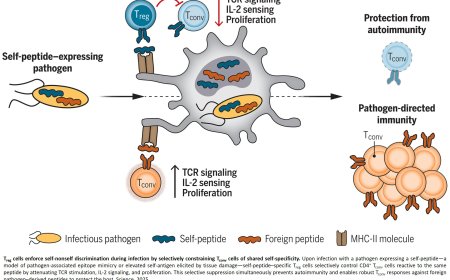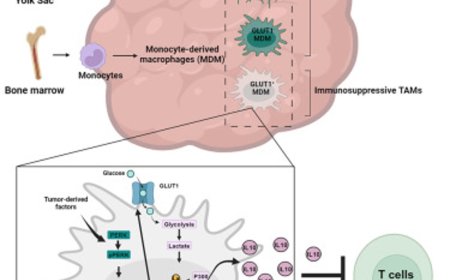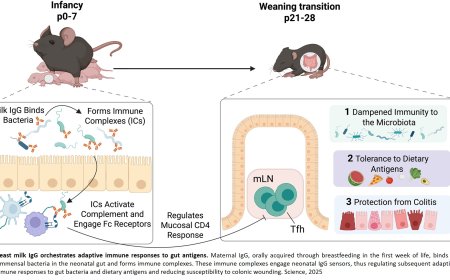New monoclonal antibody targets deadly sepsis

Scientists have developed a monoclonal antibody to stop sepsis, a deadly full-body infection. The antibody also has the potential to treat a broad array of other inflammatory conditions, including autoimmune disorders, their research indicates.
In initial testing in lab mice, the antibody proved versatile and showed “transformative potential for combatting life-threatening inflammatory diseases,” the researchers report in a new scientific paper. Potential applications could include deadly acute respiratory distress syndrome (ARDS), which rose to public attention during the COVID-19 pandemic, as well as ischemia-reperfusion injury, which is tissue damage caused when blood flow is cut off and restored. (Ischemia-reperfusion injury is a major problem for organ transplantation.)
The researchers say their work has also shed light on the molecular causes of sepsis and has the potential to produce an important tool for diagnosing the condition and monitoring patients.
“This is the kind of breakthrough that can change the standard of care,” said the author. “By combining complementary expertise in basic science, innovation and translational medicine, and by working closely with our industry partners, we’ve developed a first-in-class antibody with the potential to save countless lives from sepsis and other severe inflammatory diseases.”
Sepsis strikes up to 50 million people worldwide every year, killing approximately 11 million. It is a leading cause of death in U.S. hospitals, and the risk of death increases every hour it goes untreated. It is caused when the body’s immune response spirals out of control in response to an infection, potentially leading to organ failure and death. Even with aggressive treatment, up to 40% of patients who reach the most severe stage of sepsis still die.
The authors new antibody, they hope, could become the first treatment that directly targets the underlying immune system dysregulation responsible for sepsis. It seeks to prevent the “cytokine storms” that made headlines in the pandemic, shutting down the body’s hyperactive immune response before organ damage can occur.
Further, early testing suggests the antibody can do so without the unwanted side effects of existing sepsis treatments, such as unintended suppression of the immune system. In the initial studies, the antibody was able to stop inflammatory cytokines and restore the function of immune cells called macrophages, all while protecting against sepsis-induced lung injury, the scientists report in their new paper.
In addition to the antibody’s potential therapeutic applications, the scientists say the tools they are using to produce it may be useful for detecting and monitoring sepsis. Their platform, called PEdELISA, can quantify six cytokines from a single drop of plasma within two hours.
“Our humanized antibody has shown both safety and effectiveness in blocking the cytokine storm and restoring healthy immune function,” said the author. “Beyond treating acute infections, it has the potential to address a spectrum of diseases caused by faulty immune regulation, including autoimmune disorders, cancer and diabetes.”
The antibody has been extensively engineered for clinical application and presents significant translational potential, particularly when coupled with the PEdELISA diagnostic platform..
“Integrating PEdELISA with this first-in-class antibody therapy enables a comprehensive approach to sepsis management, allowing not only earlier and more accurate diagnosis but also continuous, near real-time monitoring of the patient’s immune status throughout treatment. This integration could facilitate timely therapeutic adjustments, prevent disease progression and ultimately increase the likelihood of achieving complete resolution,” industry partner said.
As they have developed their antibody, the scientists have made important discoveries about the underlying molecular mechanisms responsible for sepsis. The researchers identified changes that take place in macrophages that spur harmful “feedback loops” that drive the body’s uncontrolled inflammatory response. The researchers’ new antibody, they found, interrupts those changes.
Ultimately, the authors hope their sepsis work will help overcome one of the great challenges in medicine.
https://www.nature.com/articles/s41467-025-62788-6
https://sciencemission.com/H3-monoclonal-antibody-for-immune-modulation-in-sepsis













